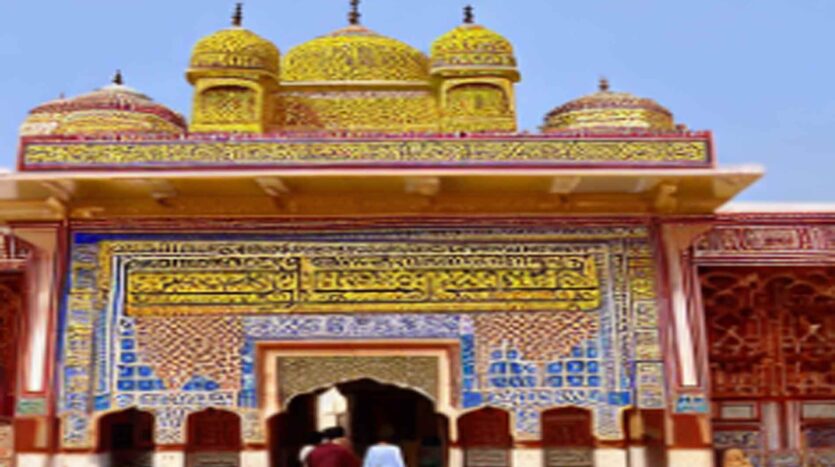The Ajmer Sharif Dargah
Located in the heart of Ajmer, Rajasthan, the Ajmer Sharif Dargah holds immense religious and cultural significance. This revered Sufi shrine is dedicated to Khwaja Moinuddin Chishti, a renowned Sufi saint. Pilgrims from various faiths visit the Dargah to seek blessings, solace, and spiritual enlightenment. In this blog, we will explore the historical significance, architectural marvels, rituals, and enduring devotion associated with the Ajmer Sharif Dargah.
Historical Significance and Origins
The Ajmer Sharif Dargah has a long and illustrious history that dates back to the 12th century when Khwaja Moinuddin Chishti, a revered Sufi saint, arrived in Ajmer. His teachings of love, peace, and harmony attracted a large following, and upon his demise, the Dargah was constructed as a mausoleum to honor his memory. Over the centuries, it has become a symbol of faith, compassion, and communal harmony, drawing devotees from diverse backgrounds.
Architectural Marvels and Sacred Spaces
The Ajmer Sharif Dargah showcases stunning Mughal and Indo-Islamic architectural elements. The Nizam Gate, the grand entrance, leads to a spacious courtyard adorned with intricate carvings and beautiful calligraphy. The main tomb, known as the Mazaar, is the focal point where the mortal remains of Khwaja Moinuddin Chishti are enshrined. Covered by a magnificent silver canopy, the Mazaar exudes an aura of reverence and spiritual significance.
Rituals, Traditions, and Sufi Practices
The Ajmer Sharif Dargah is a place of deep devotion and spiritual practices. Devotees engage in various rituals and customs as they pay homage to the saint. They offer flowers, chadars (sacred cloths), and itar (perfume) at the Mazaar, expressing their reverence and seeking blessings. Qawwali, a devotional form of music, is performed daily, creating an atmosphere of devotion and tranquility. The annual Urs festival, commemorating the death anniversary of Khwaja Moinuddin Chishti, is a significant event where thousands of pilgrims gather to seek spiritual enlightenment and pay their respects.
Universal Appeal and Communal Harmony
The Ajmer Sharif Dargah stands as a beacon of unity and inclusivity, welcoming people of all faiths and beliefs. It promotes the values of peace, harmony, and brotherhood, reflecting the teachings of Khwaja Moinuddin Chishti. The Dargah serves as a meeting point for individuals from diverse backgrounds, fostering communal harmony and understanding.
Conclusion
The Ajmer Sharif Dargah holds a special place in the hearts of devotees, offering a sacred space for spiritual seekers. Its historical significance, awe-inspiring architecture, and profound rituals inspire reverence and devotion. The Dargah’s universal appeal transcends religious boundaries, promoting communal harmony and the values of love and peace. The Ajmer Sharif Dargah remains an enduring testament to the spiritual legacy of Khwaja Moinuddin Chishti, attracting pilgrims from around the world in search of solace, blessings, and a deeper connection with the divine.


